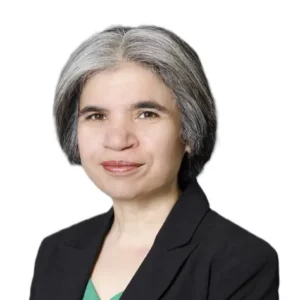
Service Overview
How Does Speech And Language Therapy work?
Speech therapy for children is most beneficial if administered at an early age. This is critical as there are specific windows of opportunity for the development of language skills. During particular periods in a child’s life, the brain is more active in forming connections to abilities – one of them being language skills.
The window of opportunity for language development not only is the best period between birth and six years of age but also the most sensitive age for acquiring skills such as distinguishing between the sounds of different languages and grasping syntax or grammar.
Speech therapy can be extremely effective in treating a broad range of speech and language problems. Speech therapy certainly benefits children with speech and language difficulties emotionally, academically and socially. They become more confident in communicating with others, enabling them to succeed better.
Focus Areas
Communication Challenges We Address
Our tailored approach focuses on improving sound production, addressing syllabic challenges, and enhancing overall communication clarity
Through specialized interventions, we aim to reduce stuttering, repetitions, and pauses, promoting smooth and fluent speech for effective communication
Our targeted strategies target pitch, volume, and voice quality issues, ensuring clear and confident vocal expression
With personalized support, we enhance language understanding and processing, fostering improved comprehension skills for effective communication
Our comprehensive interventions address word organization, vocabulary expansion, and social language use, empowering confident and proficient verbal expression
Our tailored approach focuses on improving sound production, addressing syllabic challenges, and enhancing overall communication clarity
Through specialized interventions, we aim to reduce stuttering, repetitions, and pauses, promoting smooth and fluent speech for effective communication
Our targeted strategies target pitch, volume, and voice quality issues, ensuring clear and confident vocal expression
With personalized support, we enhance language understanding and processing, fostering improved comprehension skills for effective communication
Our comprehensive interventions address word organization, vocabulary expansion, and social language use, empowering confident and proficient verbal expression
Curriculum and Schedule
Diagnoses We Address

- Autism Spectrum Disorder (ASD)
- Developmental Coordination Disorders (DCD)
- Attention Deficit Hyperactivity Disorder (ADHD)
- Learning Disabilities
- Self-Regulation skills
- Executive Function skills
- Speech Apraxia
How It Works
What Happens During the Speech Therapy Assessment?
Our SLPs are champions of collaborative care and we look forward to assisting you and your child in their communication journey. Our therapy sessions are play-based, child-led, and focus on your child’s strengths. This may be in the form of:
- Improving your child’s ability to understand better and express themselves coherently
- Helping your child pronounce words better
- Developing literacy skills (including phonological awareness, reading, and writing skills)
- Providing your child with an alternative communication method (such as through high-tech or low-tech communication systems)
- Strengthening your child’s ability to speak more comfortably and confidently in front of others.
Apart from working in individual settings, our team also runs group sessions for children working on social communication skills. Children will be grouped based on their ages and/or ability levels to ensure conducive, comfortable, and productive sessions.
Complete Evaluation
Thorough assessment of speech, language, and communication skills tailored to each child’s needs
Diverse Assessments
Use of standardized tests and clinical observations for accurate diagnosis of challenges
Streamlined Process
Assessment sessions typically last an hour and encompass a range of evaluation techniques
What areas does speech and language therapy address?
Speech and language therapy targets various communication disorders and challenges, including articulation, language comprehension, expressive language, stuttering, voice disorders, and social communication difficulties.
Who can benefit from speech and language therapy?
Individuals of all ages with speech and language disorders, developmental delays, neurological conditions, or injuries affecting communication abilities can benefit from speech and language therapy.
What approaches are used in speech and language therapy?
Speech and language therapy employs a range of techniques and interventions tailored to each individual’s needs, including articulation exercises, language drills, augmentative and alternative communication (AAC) strategies, and social communication skills training.
Our Comprehensive Services
We Are Here for You
Book a consultation today, let’s create a customized plan for your child’s growth





